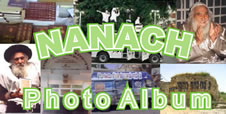Tzaddikim Must Descend To The Common FolkLikutei Halachos on Parshas Chukas Translated by Dov Grant
All activity regarding the parah adumah/red heifer is conducted “outside” the camp. This relates to the idea that the tzaddik is required to occasionally break from learning Torah. There are times that he must exit his holy “four walls” and discuss mundane matters with the common folk. It’s through this specifically that he is able to draw people close to Hashem. Thus, all sacrificial activity is performed inside the Temple, the repository of the revelation of holiness. The exception is the parah adumah, where the service is “outside”, corresponding to bittul Torah/the annulment of Torah study. For the Torah relates to the concept of the bayis/house, corresponding to the first letter beis of Bereishis (the first word in the Torah), which relates to the idea of “head of the house”. Bittul Torah is an aspect of “going outside the house”. When the true tzaddik must do this, to desist from learning, he is nevertheless able to regenerate himself with the Torah Ha’ne’elemess/hidden Torah (see Likutei Moharan II:78). The fact that the service of the parah is conducted outside conveys the idea of bittul Torah and the Torah Ha’ne’elemess. For the concepts associated with the parah itself are ne’elemess/hidden from the world. This was expressed by King Solomon: “I said that I would gain wisdom; however it remains far from me” – i.e. hidden, like the Torah Ha’ne’elemess. Thus we find that the parah is able to purify the deepest of all tumah/spiritual impurity – the tumah arising from a dead body (tumas mes). For this tumah is termed the “father” of them all – avi avos ha’tumah, related to the primary of the nations, Amalek. And the essence of Amalek stems from the pollution of the primordial snake that brought death to the world with the desire of adultery (of Chava). (Death and adultery are connected in the verses that deal with the adulterous woman: “Her final end is the path of death” and “I have found her more bitter than death”). Someone that has fallen to this tumah (adultery) can only become purified through the true tzaddik. Only the true tzaddik knows how to draw chessed chinam/unrestrained loving-kindness over such a soul from the Supernal otzar matnas chinam/ “storehouse of free gifts”, which the tzaddik taps into when he desists from learning. This is the concept of the Torah Ha’ne’elemess in respect to its relation to the physical world. And this is an aspect of the secret of the parah adumah, whose entire service is conducted outside, related to the Torah Ha’ne’elemess that purifies tumas mes. This is the explanation of the well-known paradox of the parah adumah, namely, that it purifies spiritually impure people while at the same time imparting impurity to spiritually pure people. For when the tzaddik desists from Torah study he is able to regenerate all the common folk and those distant from religion, and purify them from their great tumah. In respect to the tzaddik, however, this is termed bittul Torah and is considered a yeridah/spiritual descent for him; it is a measure of tumah in relation to the great value of his holiness that he attains when firmly attached to his Torah (see Likutei Moharan II:38). Lowering himself to deal with mundane matters is a relative descent for him, albeit temporary. Nevertheless, the tzaddik ascends to his previous spiritual level after he has bestowed benefit to the world. In summary: The bittul Torah of the true tzaddik relates to the parah adumah in the aspect of imparting tumah to the pure while purifying the impure. For in respect to the tzaddik the bittul is considered a temporary tumah somewhat, for afterwards he immediately purifies himself. For the tumah that the parah imparts to those that deal with her is only temporary, lasting until the evening. And the tzaddik, like the parah, eternally cleanses souls from the greatest of impurities, that of death, with the concept of the parah, whose service is “outside”, related to the concept “the bittul of Torah is its existence”. Choshen Mishpat Hilchos Matanah 3:12 |
|






